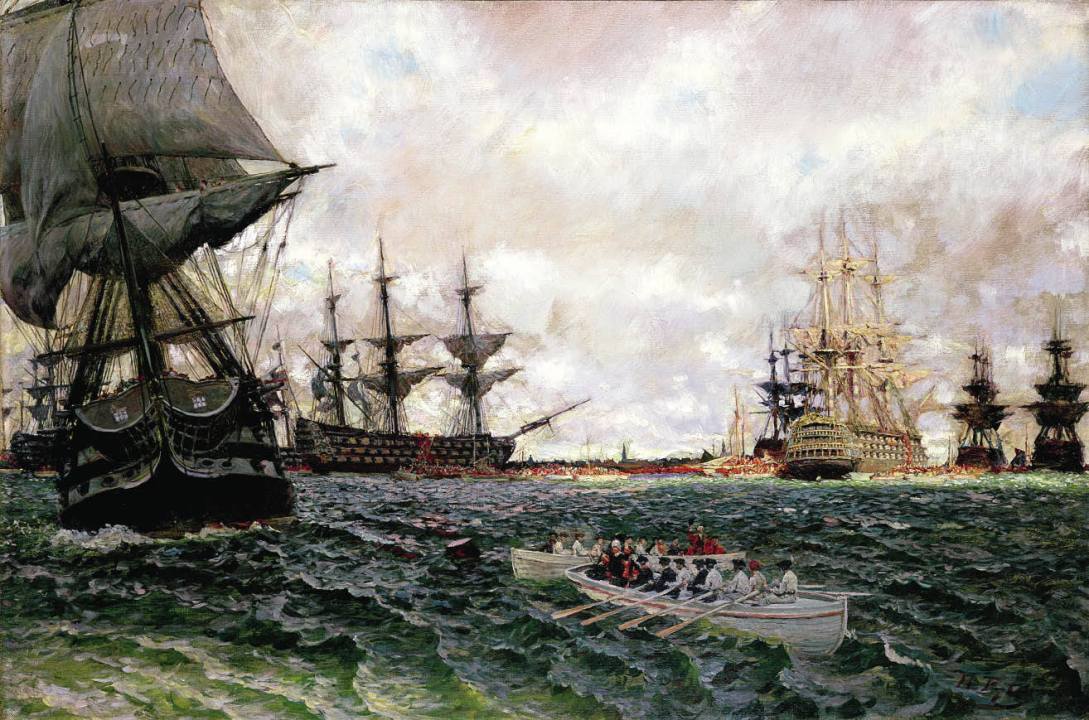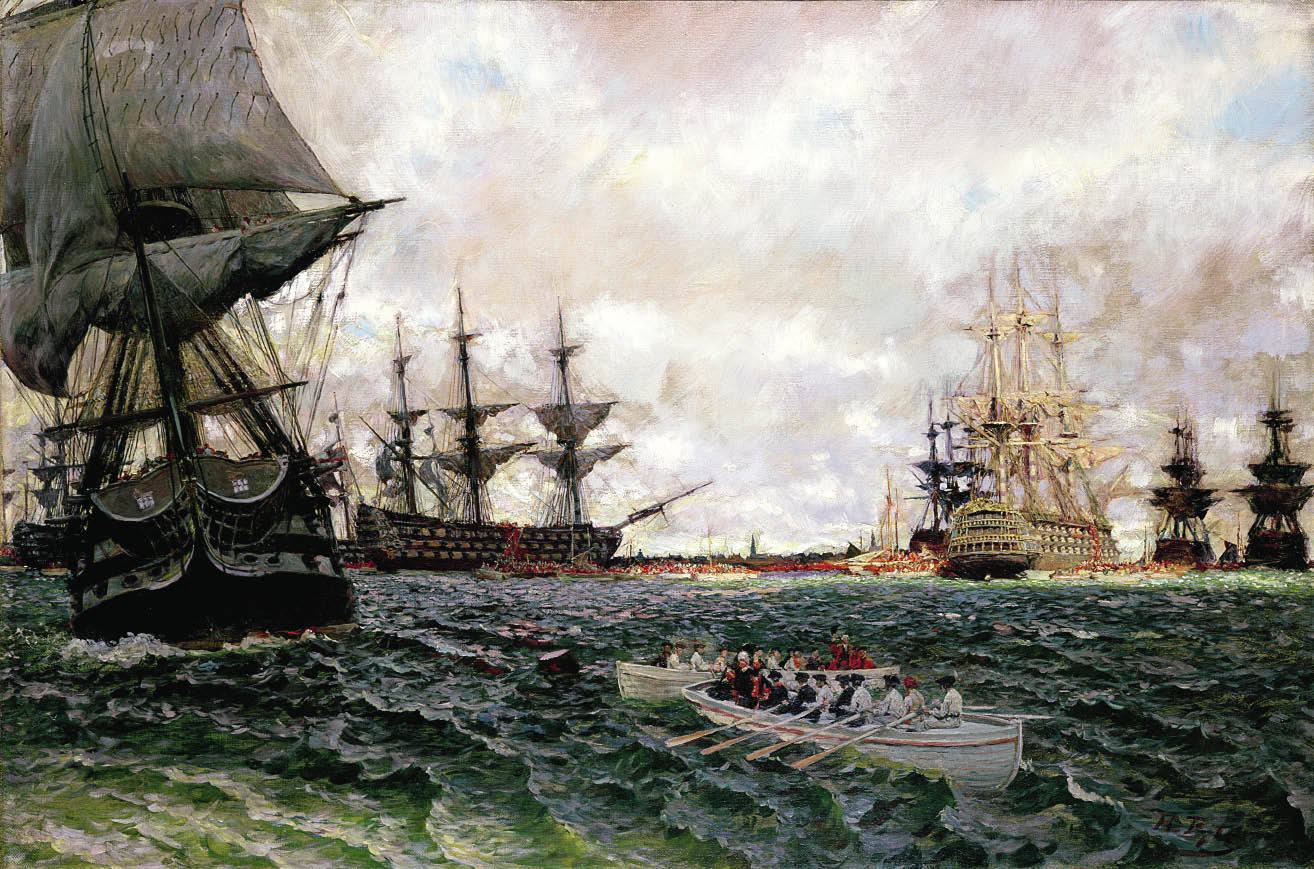Something strange happened in New York on a cold November afternoon in 1783: the city effectively turned itself inside out. Mounted on a grey horse, George Washington marched down Manhattan at the head of the victorious US army. At the same time, British troops headed frantically in the opposite direction. When they reached the southernmost tip of the island, they clambered into longboats and rowed out to the Royal Navy ships waiting in the harbour.
All this, of course, left the thousands of loyalists who had supported the British during the War of Independence in a very tricky position. It’s tempting to characterise them as a lot of 18th-century Bufton Tuftons — rich, educated Anglicans who’d made the fatal mistake of pledging allegiance to their mother country rather than their adopted one.
In fact, they were a remarkably disparate bunch. Along with staunch Anglophiles such as William Franklin — only son of the American founding father Ben — there were large numbers of American Indians. There were also 20,000 former slaves who had agreed to fight for the British in return for their freedom. Among these were two dozen who had once belonged to Thomas Jefferson, principal author of the Declaration of Independence, and also one ‘Henry Washington’, formerly the property of George.
Soon around 60,000 loyalists, fearful of what the future might hold if they hung about, also decided the time had come to get out. Some went to Britain, some to Nova Scotia, some to the West Indies, some to Australia and some — most bizarrely of all — ended up founding a Utopian community in Sierra Leone.
As Maya Jasanoff is eager to point out, Liberty’s Exiles is the first history of the loyalist diaspora. But it’s also an account of how the British empire put itself back together after the humiliation of losing the 13 American colonies. For a while it looked as if this might be a blow from which the empire would never recover. Yet only 30 years later, the Union Jack fluttered triumphantly over the fields of Waterloo and the British stood higher and prouder in the world than ever before.
One of the American Indians who came — briefly — to Britain was Thayendanegea, King of the Mohawks. Also known as Colonel Joseph Brant, he had fought for the British in both the Seven Years War and the American War of Independence. The visit, however, was not a success. At a glamorous costume ball in London, Brant caused a considerable stir when he turned up in full Mohawk dress with half his face streaked in scarlet paint. But an Ottoman diplomat, presumably deranged with drink, got it into his head that Brant was wearing a mask. Grabbing hold of his nose, he tried to pull it off. Greatly affronted, Brant whipped out his tomahawk and swung it at the Turk’s head.
This, though, was nothing compared with the humiliations endured by those at the other end of the social scale. At the same time as Brant came to Britain, so too did Shadrack Furman, a free black Virginian. Furman had worked as an informant for the British during the war and been captured by American soldiers. Refusing to disclose information, he was sentenced to 500 lashes. Amazingly, he survived. With his back flayed down to the muscle, deranged by an axe blow to the head, blind in both eyes and also lame, Furman, like many former slaves, ended up begging on the streets of London.
More loyalists went to Nova Scotia and New Brunswick than anywhere else. Not all of them were smitten with what they found. A lawyer from Boston told a friend he could not wish ‘this stupid, insipid, extravagantly dear and horrid rainy storm hole’ on anyone.
Yet within a few years the city of St John had become a mini New York where new arrivals could be almost certain of bumping into someone they knew. Former slaves came here, too, their presence prompting wildly mixed reactions among the whites. One white couple was much taken by David George, a black Baptist minister, and asked him to baptise them. But during the service their infuriated relatives burst into the church. Determined to stop the baptism from going ahead, the woman’s sister hung doggedly onto her hair to prevent her from being immersed.
The influx of freed slaves had its greatest impact in Jamaica. The island prided itself on being the most loyal colony of all, but the 3,000 loyalist refugees who arrived there in the mid 1780s threatened to destabilise a society where 18,000 whites were outnumbered ten to one by slaves. The regime, already appallingly brutal, became harsher still to try to ensure no slaves got any uppity ideas about freedom.
The diary of Thomas Thistlewood, a plantation overseer, gives a flavour of what life was like in 18th-century Jamaica. By his own admission, Thistlewood had sex with 138 female slaves. He also stuck the heads of executed runaways on poles for everyone else to see, and by way of punishment for minor offences sliced their cheeks and cut off their ears. Of one slave, who had been caught eating sugercane, Thistlewood noted with satisfaction, ‘I had him well flogged and pickled, then made Hector shit in his mouth.’
Probably the best place for former slaves to end up was Sierra Leone — that’s assuming you lasted the journey. Three hundred or so destitute blacks who’d come to Britain were sent there by a charitable organisation called the Committee for the Black Poor. Due to various administrative hold-ups, the ship taking them didn’t set sail for four months, by which time 50 of them had already died ‘of fever’.
When the survivors landed in Sierra Leone in 1787, they became, as Jasanoff writes, ‘the first “back-to-Africa” project in modern history.’ A year later, the Temne chief, King Naimbana, agreed to sell them a large chunk of land. Whichever way you cut it, Naimbana got a rotten deal. In return for several thousand acres and the right to levy customs duties on any ship anchored in the harbour, he received several suits of embroidered clothes, a telescope, a fake diamond ring and two large cheeses.
This is a diffuse story and the challenge facing Jasanoff was imposing some cohesion on it. She’s done this with great skill, allowing individual elements room to breath without letting any one predominate.
It’s true that she uses the verb ‘opine’ quite a lot, which makes anyone deserving of a light flogging in my book, and her sniffy reference to Wilberforce’s paternalistic antislavery campaign seems a bit harsh. But in every other respect, this is an enormously impressive piece of work, fluent, incisive and full of vim. Not only has Maya Jasanoff found a previously unexplored and fascinating subject, her treatment of it may well prove to be definitive.







Comments